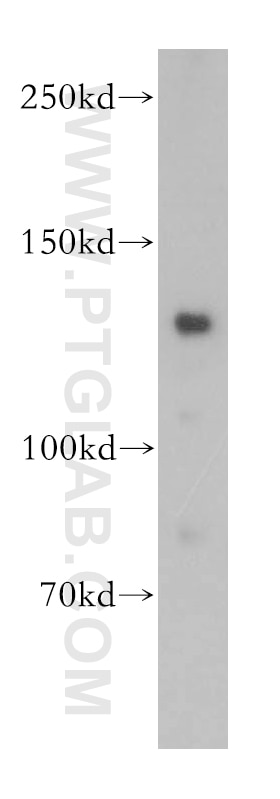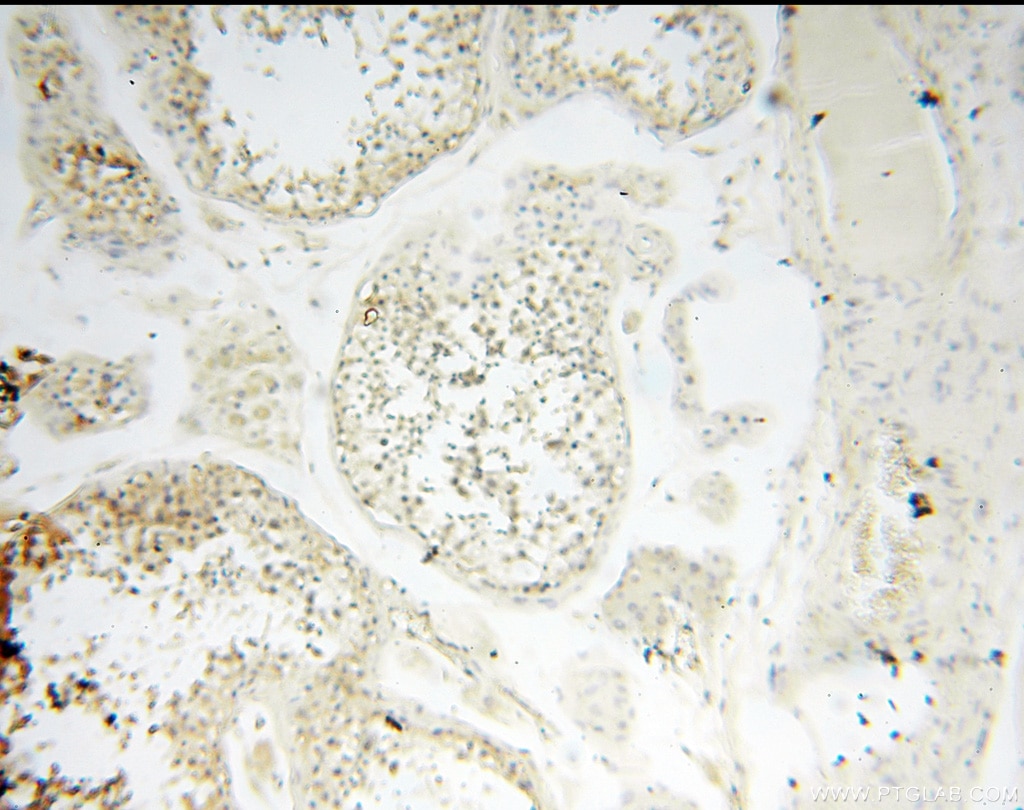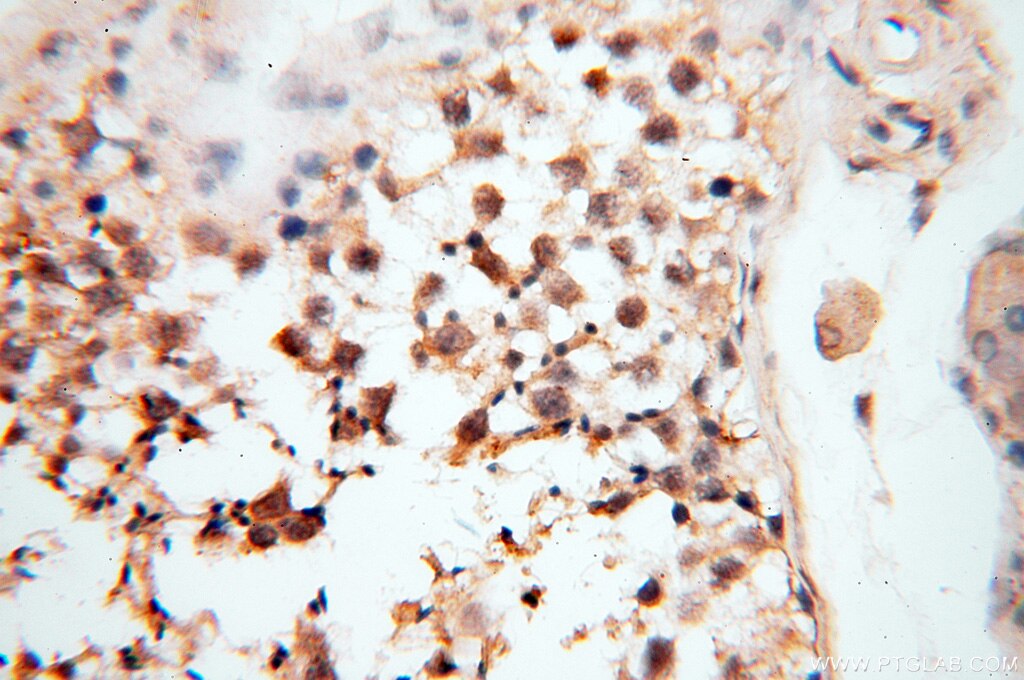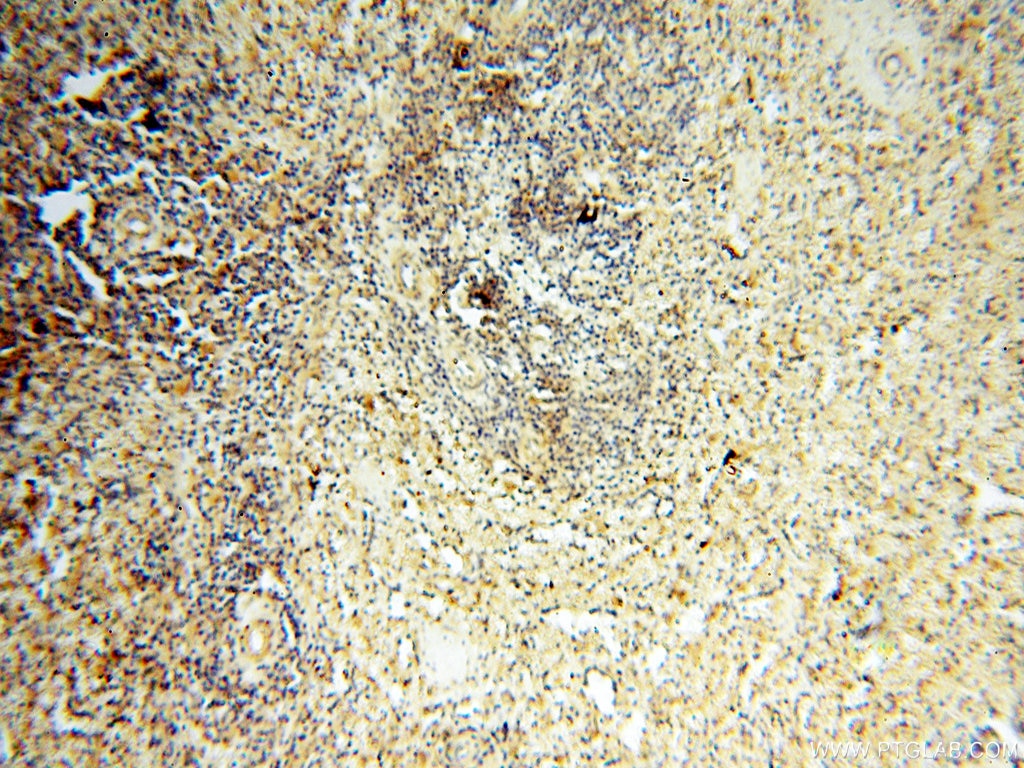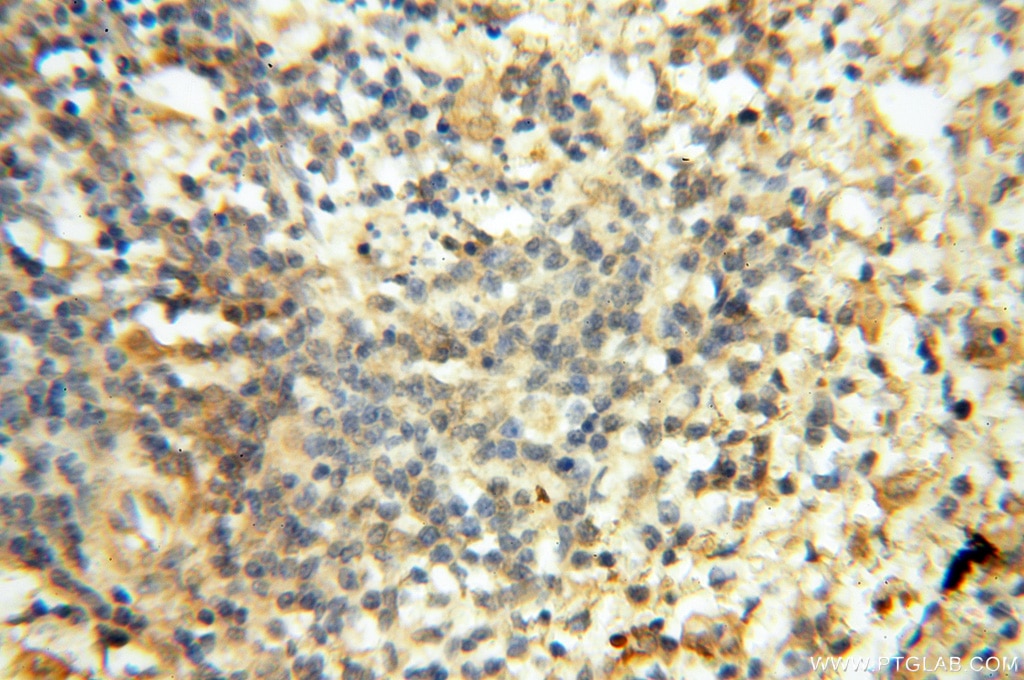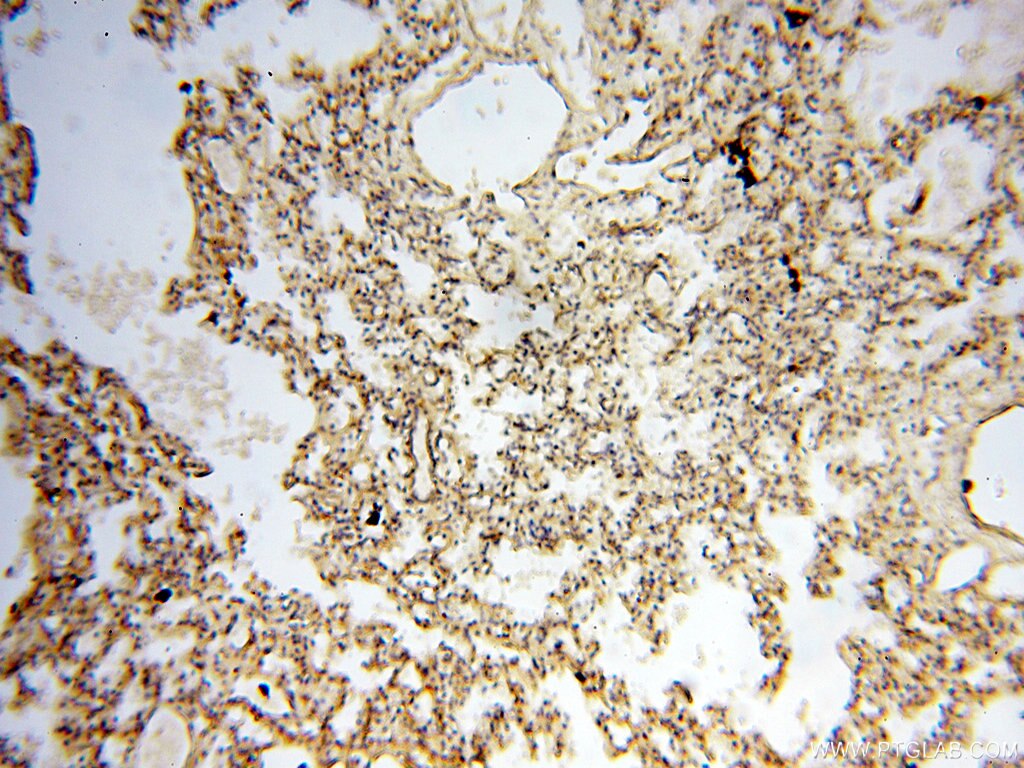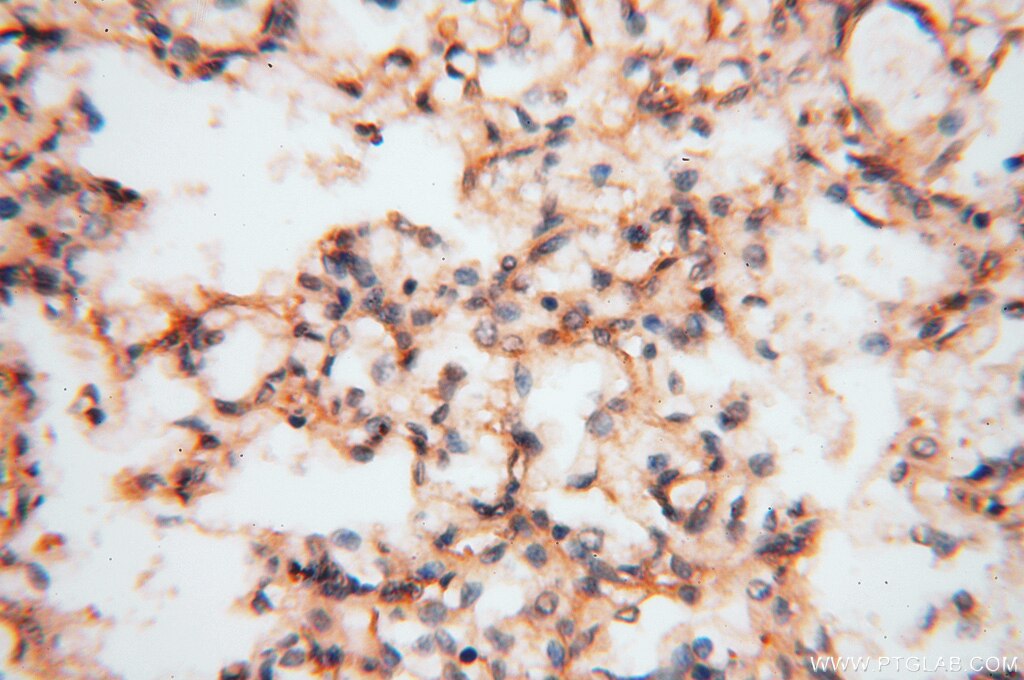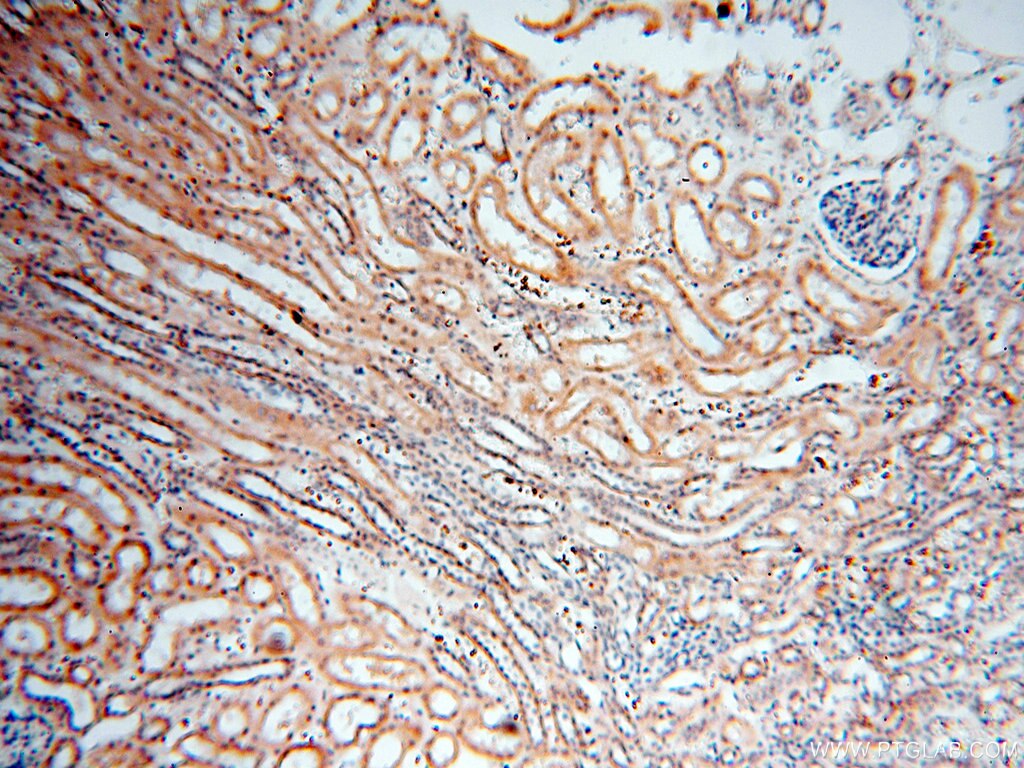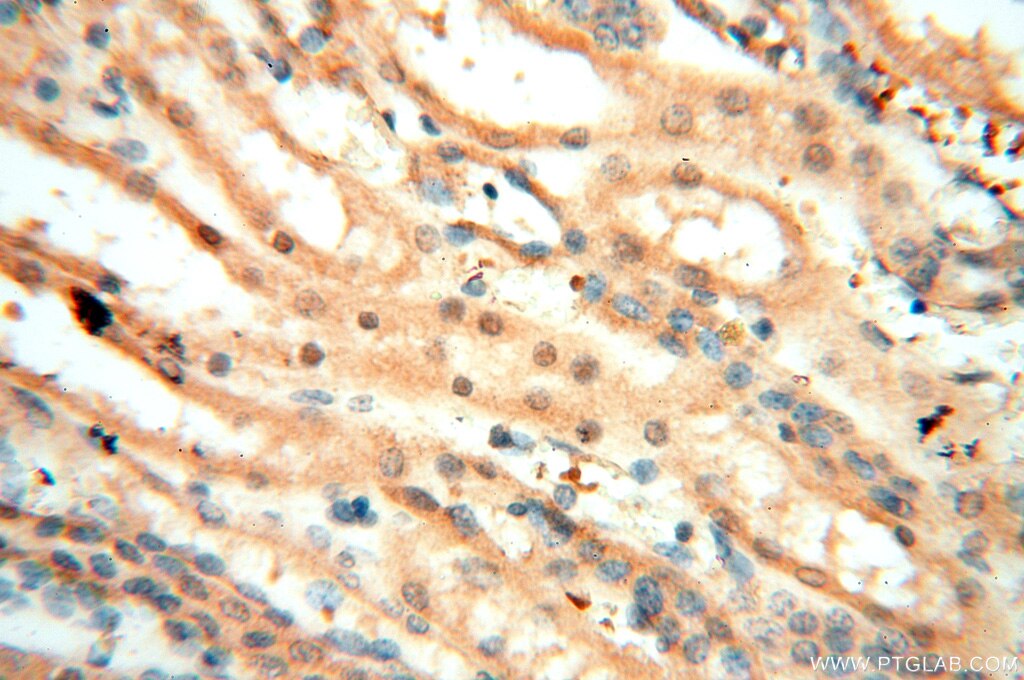CARD6 Polyclonal antibody
CARD6 Polyclonal Antibody for WB, IHC, ELISA
Host / Isotype
Rabbit / IgG
Reactivity
human and More (1)
Applications
WB, IHC, ELISA
Conjugate
Unconjugated
Cat no : 18029-1-AP
Synonyms
Validation Data Gallery
Tested Applications
| Positive WB detected in | HepG2 cells |
| Positive IHC detected in | human testis tissue, human kidney tissue, human lung tissue, human spleen tissue Note: suggested antigen retrieval with TE buffer pH 9.0; (*) Alternatively, antigen retrieval may be performed with citrate buffer pH 6.0 |
Recommended dilution
| Application | Dilution |
|---|---|
| Western Blot (WB) | WB : 1:500-1:2000 |
| Immunohistochemistry (IHC) | IHC : 1:20-1:200 |
| It is recommended that this reagent should be titrated in each testing system to obtain optimal results. | |
| Sample-dependent, Check data in validation data gallery. | |
Published Applications
| WB | See 1 publications below |
Product Information
18029-1-AP targets CARD6 in WB, IHC, ELISA applications and shows reactivity with human samples.
| Tested Reactivity | human |
| Cited Reactivity | rat |
| Host / Isotype | Rabbit / IgG |
| Class | Polyclonal |
| Type | Antibody |
| Immunogen | CARD6 fusion protein Ag12595 相同性解析による交差性が予測される生物種 |
| Full Name | caspase recruitment domain family, member 6 |
| Calculated molecular weight | 1037 aa, 116 kDa |
| Observed molecular weight | 130 kDa |
| GenBank accession number | BC093825 |
| Gene symbol | CARD6 |
| Gene ID (NCBI) | 84674 |
| RRID | AB_2290686 |
| Conjugate | Unconjugated |
| Form | Liquid |
| Purification Method | Antigen affinity purification |
| Storage Buffer | PBS with 0.02% sodium azide and 50% glycerol pH 7.3. |
| Storage Conditions | Store at -20°C. Stable for one year after shipment. Aliquoting is unnecessary for -20oC storage. |
Background Information
The caspase recruitment domain (CARD) is a homotypic protein-protein interaction module that links components of signal transduction pathways implicated in the regulation of apoptosis or adaptive or innate immunity. Although much progress has been made in assigning precise roles to most CARD-containing proteins, the functions of the 1,037-amino-acid (aa) human and 1,175-aa mouse CARD6 proteins are still unknown. CARD6 has a unique structure in that it contains the CARD at the N terminus, a glutamic acid-rich region following the CARD, and a proline-rich region at the C terminus. CARD6 also harbors a 350-aa region with similarity to upregulated gene 4 (URG4), a protein that is induced in response to hepatitis Bx antigen overexpression and exerts a positive effect on proliferation. Both CARD6 and URG4 share structural features with members of the multifaceted, IFN-inducible GTPase (IFNiGTPase) superfamily, which contains some of the proteins most abundantly induced during cell-autonomous immune responses. The calcualted molecular weight of CARD is 116 kDa, but modified CARD6 is about 130 kDa. (PMID: 18160713)
Protocols
| Product Specific Protocols | |
|---|---|
| WB protocol for CARD6 antibody 18029-1-AP | Download protocol |
| IHC protocol for CARD6 antibody 18029-1-AP | Download protocol |
| Standard Protocols | |
|---|---|
| Click here to view our Standard Protocols |
Publications
| Species | Application | Title |
|---|---|---|
J Cell Mol Med Exercise ameliorates insulin resistance and improves ASK1-mediated insulin signalling in obese rats. |
